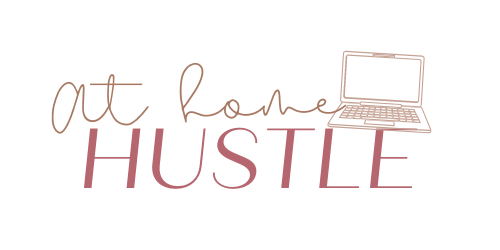Rising Costs Are Making Professional Cleaning Unaffordable

House cleaning services now cost between $125 to $225 on average, with one-time services ranging from $120 to $280. Since 2020, hourly rates for standard house cleaning have increased from $25-$30 to $55-$65, representing more than a doubling of costs. For a bi-weekly service, families can expect to pay around $3,900 per year, which breaks down to $75 per week. When I calculated what we were spending annually, it hit me that this money could cover a family vacation or several months of groceries.
The math became impossible to ignore when I realized we were essentially paying someone $20 per hour to save us time, but we were still cleaning on the off-weeks anyway. According to the Bureau of Labor Statistics’ 2024 Consumer Expenditure Survey, American households spend an average of $2,800 annually on house cleaning and maintenance services.
Quality Issues Are More Common Than You’d Think

Commercial cleaning companies may experience client churn rates of 15-35% annually, with retention challenges often related to service quality issues. During my experience with five different cleaning companies, I noticed inconsistent results that rarely matched my own cleaning standards. Items were frequently moved around without being put back in their proper places, and certain areas were regularly missed or given only superficial attention.
The reality is that when you hire someone to clean your home, you’re trusting them to care about your space as much as you do. Unfortunately, this level of care isn’t always guaranteed, especially when cleaning teams are rushed between multiple appointments in a single day.
The Hidden Stress of Managing Cleaning Services

What nobody tells you about hiring house cleaners is that it creates its own set of stresses. You have to be home to let them in, prepare your house beforehand by tidying up, and deal with scheduling conflicts when they can’t make it. I found myself spending time before each visit organizing clutter so the cleaners could actually clean the surfaces underneath.
House cleaners may need time off for illness or family emergencies, and you’re expected to still compensate them for that time. This means you’re paying for services you’re not receiving while still having to clean your home yourself when they don’t show up.
Trust and Privacy Concerns Are Growing

Allowing strangers into your home raises privacy concerns for many people, and hiring based on online reviews isn’t foolproof since reviews can be easily faked. Each time a new cleaner entered my home, I felt anxious about leaving them alone with my belongings and personal space.
The constant rotation of different team members meant building trust was nearly impossible. Just when I’d get comfortable with one person, they’d send someone completely new the next time. This lack of consistency made it difficult to establish the kind of working relationship that would justify the expense and inconvenience.
The Industry’s Labor Challenges Affect Service Quality

The majority of cleaning businesses are small, with 90% employing fewer than 10 people, and 99% of these businesses are independently owned. This structure often leads to high employee turnover and inconsistent training standards. Labor shortages in the cleaning industry have created challenges for businesses trying to maintain quality while keeping employees satisfied.
According to estimates from the cleaning sector, there are approximately 75.6 million domestic workers worldwide according to the International Labour Organization, most of them are women from underprivileged backgrounds. This reality made me uncomfortable about the power dynamics involved in hiring someone to clean my home, especially considering the low wages many cleaners receive despite the high prices customers pay.
Technology and Automation Are Changing the Game

The cleaning robot market is forecasted to expand from approximately $9 billion in 2022 to around $24 billion by 2027, with Asia-Pacific leading the market at 31% share. Instead of paying thousands annually for human cleaners, I invested in quality cleaning equipment and robotic vacuums that work consistently without scheduling conflicts or trust issues.
Floor cleaning robots are expected to capture over 44% of the total market share by 2025. These technological solutions provide reliable, consistent cleaning without the interpersonal complications and rising costs of traditional services.
The Environmental and Health Impact Consideration

Based on information from independent market researchers, 70% of consumers have concerns about the chemicals used in residential cleaning. According to the Environmental Protection Agency, many cleaning products contain toxic chemicals harmful to adults, children, and the environment, potentially causing eye, skin, or respiratory irritation.
When I clean my own home, I have complete control over the products used and can ensure they’re safe for my family and pets. Professional cleaners often work with harsh chemicals for hours every day, which can harm their lungs and skin, adding another ethical dimension to the decision.
Learning to Value Your Own Time and Effort

Most homeowners spend 4-6 hours weekly maintaining their space, and when you multiply those hours by your hourly work rate, professional cleaning might seem like a smart financial decision. However, I discovered that cleaning my own home provided unexpected benefits beyond just saving money.
The physical activity became a form of exercise, and the meditative aspects of repetitive tasks like vacuuming and organizing helped reduce my stress levels. Some people find cleaning therapeutic when they can put on their favorite music and zone out for a few hours, and it can be very satisfying when you tackle tasks that have been staring at you for days or weeks.
The decision to stop hiring house cleaners ultimately came down to recognizing that the industry’s rapid growth has created challenges that many customers are beginning to notice. Rising costs, quality inconsistencies, and the stress of managing service providers made me realize that taking control of my own cleaning schedule was not only more economical but also more satisfying than I expected.
